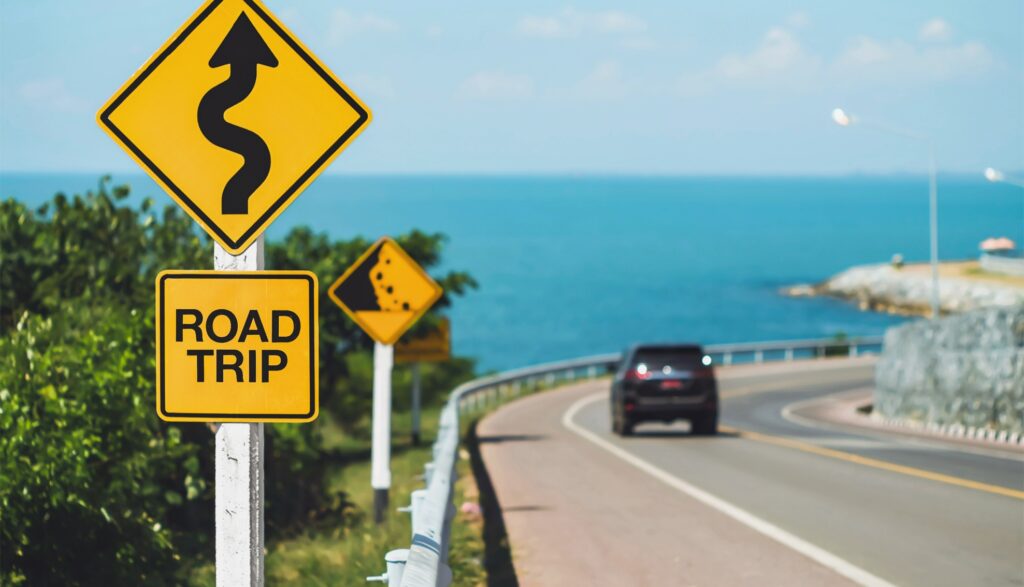As the hum of peak travel season fades into memory, a new energy is pulsing through global tourism. The lure of the open road the promise of spontaneity, discovery, and control is fuelling one of the most significant shifts in leisure travel today.
Recent research suggests that in 2025, as many as 83% travellers intended to take a holiday by car, with 63% actively preferring to drive rather than fly for domestic travel. For destination marketers and travel agents alike, the implications are striking. The road trip market, worth an estimated US$90.44 billion in 2025, is forecast to surge to more than US$138 billion by 2034. But the real story lies not in the statistics, but in the behaviour reshaping how, where, and why people travel.
Travellers are no longer fixated on point A to point B. They are embracing the richness of what lies in-between: winding scenic trails, independent cafés, heritage towns and quirky roadside attractions. This micro-journeying transforms the humble drive into an immersive travel experience. For agents, this means road trips are not simply an add-on, but a thread that can extend and deepen the traveller’s overall journey.

By integrating curated stopovers, recommended dining, or boutique stays en route, an itinerary evolves from a standard package into an odyssey and with it, multiple earning opportunities across varying price points. A family road holiday, for example, could combine value hotel nights with premium wildlife encounters. A millennial road adventure might weave together budget-friendly campsites alongside a splurge-worthy vineyard stay.
Who Is Driving the Trend?
Gen Z and Millennials – Digital natives hungry for authenticity. They rely on social media inspiration and expect itineraries that feel bespoke, spontaneous, and shareable. Highlighting walkable town centres, street food festivals, and photogenic stops directly appeals to them.
Families – Parents in their 30s to 50s are rediscovering the convenience of travelling at their own pace, with space for luggage, snacks, and flexibility. These travellers often stay longer and spend more per trip, seeking multi-generational activities that satisfy all ages.
Repeat Travellers – Those who return to relive favourite routes or bring new companions. They form the bedrock of loyalty, turning destinations into traditions.

Why Agents Must Pay Attention
Roadtrippers are already in the habit of searching constantly browsing for where to eat, what’s worth a detour, and where to stop overnight. With intelligent marketing and itinerary design, travel agents can step into these micro-moments, shaping decisions that turn passing interest into spend. This is not only about winning the “final stop” of a journey. It is about positioning as the expert who anticipates the road-tripper’s needs: the family-friendly hiking trail, the tucked-away gastropub, the boutique inn a short drive off the main road.

Turning Insight into Action
For travel agents, the commercial potential lies in three key strategies:
- Promote the Journey – Package the road trip as an experience in its own right, not merely a means of transport. Sell the romance of the road: panoramic lookouts, artisan bakeries, regional wineries.
- Curate Personalised Itineraries – Ditch generic “Top 10” lists. Tailor stops to passions – whether it’s surf breaks for adventure seekers, live music venues for culture lovers, or culinary detours for foodies.
- Unearth Hidden Gems – With 92% of U.S. travellers reportedly seeking “destination dupes”, agents who can guide them to authentic alternatives – secondary cities, charming villages, lesser-known byways – will add real value.
- Capitalise on Multiple Price Points – Build layered itineraries that offer clients flexibility to splurge or save along the way. A luxury road package might combine chauffeur-driven segments, fine-dining reservations, and boutique stays, while a value-focused option could feature self-drive cars, budget accommodation, and local diners. Both generate incremental revenue.
- Invite Them Back – Smart post-trip communication, such as a personalised “thank you” note highlighting what they missed this time, keeps the door open for repeat bookings.
The Bigger Picture
The resurgence of road travel reflects something deeper: a traveller psyche that craves both freedom and connection. Road trips are democratic accessible at almost any budget level and elastic, stretching to accommodate indulgence or thrift. For the trade, this flexibility is gold dust. It allows agents to tailor experiences across demographics, geographies, and spending power, while strengthening loyalty through journeys that feel personal.
In a world increasingly defined by algorithms and efficiency, the enduring appeal of the open road reminds us that travel is about discovery, surprise, and narrative. For travel professionals, those winding highways are more than routes. They are opportunities to extend the traveller experience – and in doing so, to drive business growth mile after mile.


